Suffering, Squalor, and Stolen Dreams: Inside Lesbos’ Refugee Camps
The charming Greek island of Lesbos, once famous for its rich heritage, ouzo, and olive oil, is a notorious hotspot for refugees. The symbolic Statue of Liberty, standing tall since 1922, serves as a reminder of the island’s history following the Asia Minor war when thousands of Greeks fled to Lesbos. Located in the Aegean Sea near Turkey, the island became a focal point during the refugee crisis in 2015 when approximately 379,000 refugees arrived. Refugees continue to arrive every day, and around 17,029 people of the island’s population of over 86,000 people are refugees, the majority of whom are children (43 percent) many unaccompanied (18 percent) – from war torn countries. With the influx of refugees, the island …
A Contrarian View of Turkey’s Incursion into Northern Syria
Global attention has focused on the Middle East once more after Turkey launched a military operation, named Peace Spring, moving into Northern Syria. The incursion was made possible by the prior withdrawal of US troops. Beforehand, there was little outwardly indication of the troubles to come: Daesh’s territory was conquered and the US and Turkey cooperated in the region. However, everything started to fall apart after the phone call between President Erdogan and President Trump, in which he agreed to withdraw US troops from Northern Syria, became public. Since then, commentators have criticized President Trump’s decision to withdraw, and Turkey’s actions and intentions. It has been claimed that Turkey is solely motivated by its conflict with Kurdish forces, who have …
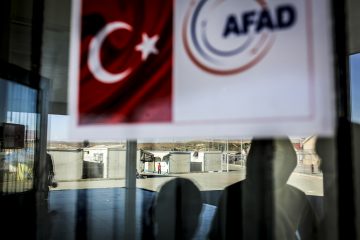
Syrian Refugees in Turkey: How Will Political Events Determine Their Future?
In contemporary world politics, migration and refugee crises are among the most heartrending and vexatious issues. Syria represents one of the most significant humanitarian crises and disasters of our time. Since the conflict has started in 2011, thousands of civilians have been killed, and millions have been forced to flee from their homeland. Since its outbreak, civil war and terrorism have forced millions of people to seek refuge in neighboring countries, including Turkey, Jordan, Egypt and elsewhere. The massive inflow of refugees from Syria makes Turkey the largest host country for Syrian refugees in the region, and the country hosting most refugees in the world in absolute terms. Even though many Syrian refugees currently reside in refugee camps, the vast …

Even more unpredictable: Trump’s U-turn on Syria
“When you kill innocent children – innocent babies – babies – little babies with a chemical gas that is so lethal, people were shocked to hear what gas it was, that crosses many, many lines. Beyond a red line, many, many lines,” Trump said when asked about Tuesday’s chemical weapons attack in Syria that killed some 80 civilians and injured many more. Thursday night he swiftly followed through with his remarks, launching missile strikes on Shayrat airfield in Syria, where the attack is suspected to have originated. Commentators have been quick to point out Trump’s remarkable U-turn on Syria. From his ‘America First’ rhetoric, to his cosying up to Putin and repeated statements that he thinks ‘many very bad things …
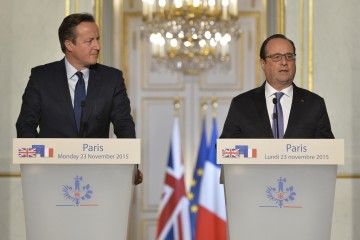
Overconfidence and the War in Syria
The attacks in Paris have elevated both the desire and the case for a full-scale war against Islamic State in Syria. French President Francois Hollande has vowed not just to fight IS, but to destroy it. The US and Russia are poised to significantly up their stakes, and Prime Minister David Cameron has begun laying out the argument to extend British airstrikes into Syria as well. The war is already underway and likely to escalate into an even greater coalition of military power than already exists. However, wars are unpredictable. This is especially so in the case of Syria, with multiple non-state armed groups interacting with each other, multiple foreign state actors, and no legitimate government. Even the vast asymmetry …
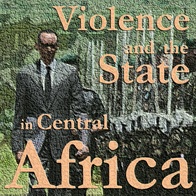
How civil wars end
There is a tendency, even among scholars, to view civil wars as involving two actors—the “government” and “rebels.” This presumption likely arises because historical civil wars that have received the most attention—such as the American and Chinese civil wars—were generally fought between two recognized, organized combatants. Yet, many civil wars (both historical and modern) involve more than two actors.
Take the current civil war in Syria. The Syrian government battles a series of rebel groups that generate a large number of acronyms—ISIS, SLA, SIF, and so on—and that frequently fight amongst themselves. These groups often seek to form coalitions to coordinate their opposition, but the coalitions are unstable and have difficulty controlling their constituent parts. The Syrian conflict also has a large level of external involvement, with the government receiving direct military support from Iran and Hezbollah plus a large number of additional external states and non-state actors seeking to turn the course of the war.
The Syrian opposition’s fragmentation is extreme, but the multiparty nature of the conflict is by no means unique. In fact, many of the wars that have received the most international attention in recent decades—such as in Afghanistan, Columbia, the Democratic Republic of the Congo, Iraq, the Palestinian conflict in Israel, the Darfuri war in Sudan, and Somalia—have involved several rebel groups and significant external involvement.
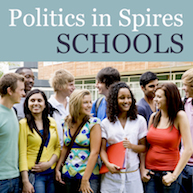
Protecting Civilians
It feels wrong to watch the news about Syria and the Central African Republic night after night without seeing any effective international action being taken to stop the killing, displacement and rape. After millions of civilians were killed in the Second World War, the United Nations was set up specifically “to save succeeding generations from the scourge of war”. So why doesn’t it?
Hugo Slim investigates the current state of international politics regarding the legitimacy of humanitarian intervention and the responsibility to protect.
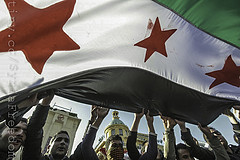
Lifting the Siege: Protecting Civilians in Syria
Even the most zealous ideologues have been challenged approaching Damascus. Thrown from their horse, they have been left dazed and partially sighted, forced to re-examine their norms. Damascus has presented such a challenge once again in recent months. This time, it is the new norm in international relations known as R2P—the responsibility to protect—that has been temporarily unseated. It is a simple formula. This important new norm contends that it is the international community’s responsibility to protect civilians when a state fails in its responsibility to do so. R2P has made swift progress in the international community since its adoption (in a watered-down form) at the United Nations Summit in 2005, gaining acceptance at the same time as the rise …









